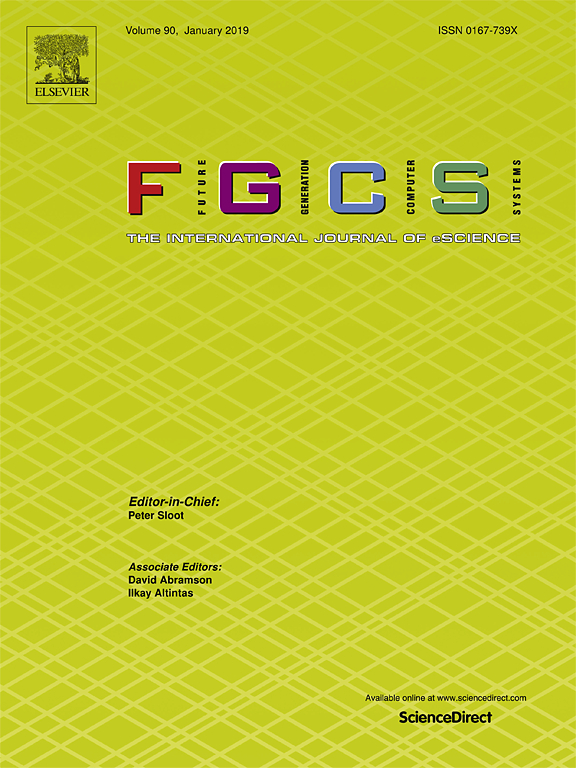Editorial Board
Kafka-ML: Connecting the data stream with ML/AI frameworks
Do machine learning platforms provide out-of-the-box reproducibility?
A binary moth search algorithm based on self-learning for multidimensional knapsack problems
An adaptive recognition method for take-off action images of back-style high jump based on feature extraction
STGNN-TTE: Travel time estimation via spatial–temporal graph neural network
PSO and K-means-based semantic segmentation toward agricultural products
Optimizing 2-opt-based heuristics on GPU for solving the single-row facility layout problem
A reinforcement learning-based framework for disruption risk identification in supply chains
MS scheduler: New, scalable, and high-performance sparse AVX-2 parity encoding and decoding technique for erasure-coded cloud storage systems
Scalable blockchains — A systematic review
Object detection/tracking toward underwater photographs by remotely operated vehicles (ROVs)
m-RENDEZVOUS: Multi-Agent Asynchronous Rendezvous Search Technique
EnTruVe: ENergy and TRUst-aware Virtual Machine allocation in VEhicle fog computing for catering applications in 5G
Privacy regulation aware service selection for multi-provision cloud service composition
Regional flow control in peak travel period based on fuzzy algorithm
Human resource recommendation algorithm based on improved frequent itemset mining
A fast-iterative reconstruction algorithm for sparse angle CT based on compressed sensing
Physical layer security for Internet of Things via reconfigurable intelligent surface
Recent advancements and challenges of Internet of Things in smart agriculture: A survey
Detection of weak electromagnetic interference attacks based on fingerprint in IIoT systems
STPD: Defending against ℓ0-norm attacks with space transformation
Effective and efficient skyline query processing over attribute-order-preserving-free encrypted data in cloud-enabled databases
Empathic conversational agents for real-time monitoring and co-facilitation of patient-centered healthcare
Guest Editorial: Graph-powered machine learning in future-generation computing systems
Maximal cliques based method for detecting and evaluating learning communities in social networks
ACMF: An Attention Collaborative Extended Matrix Factorization Based Model for MOOC course service via a heterogeneous view
Deep cognitive diagnosis model for predicting students’ performance
Classifying students based on cognitive state in flipped learning pedagogy


